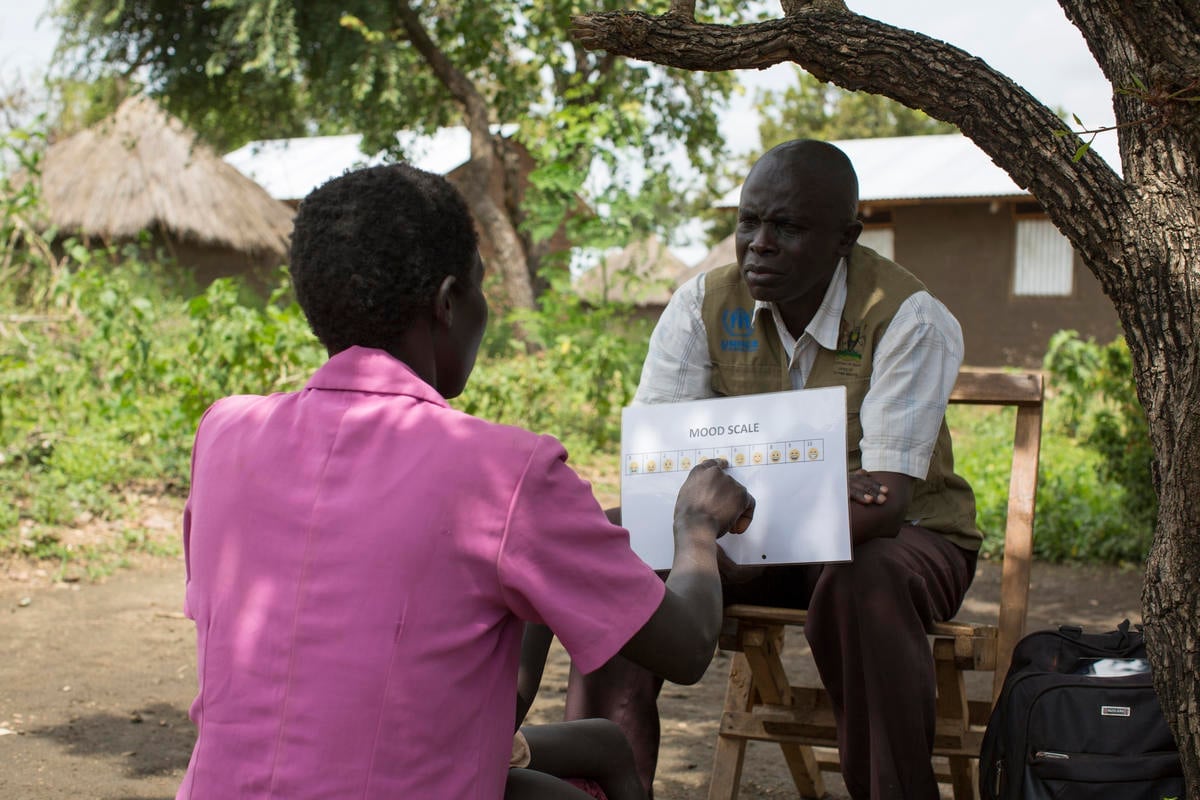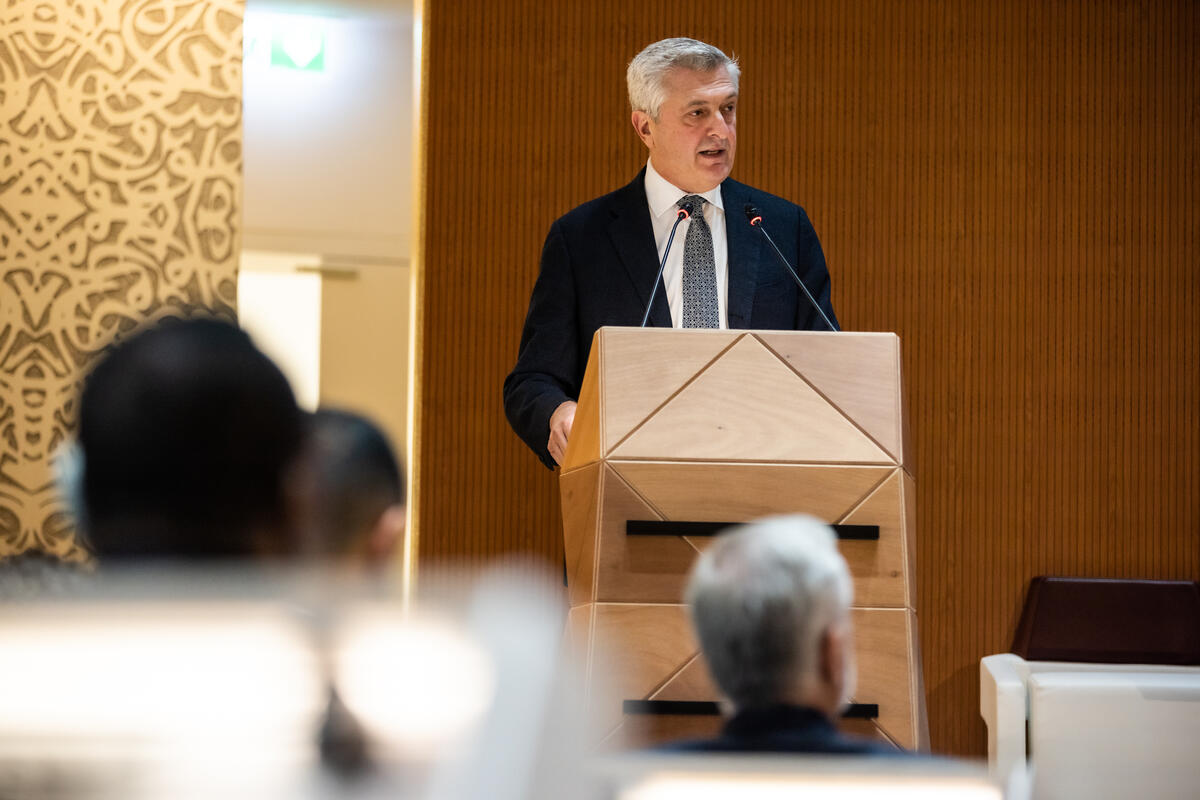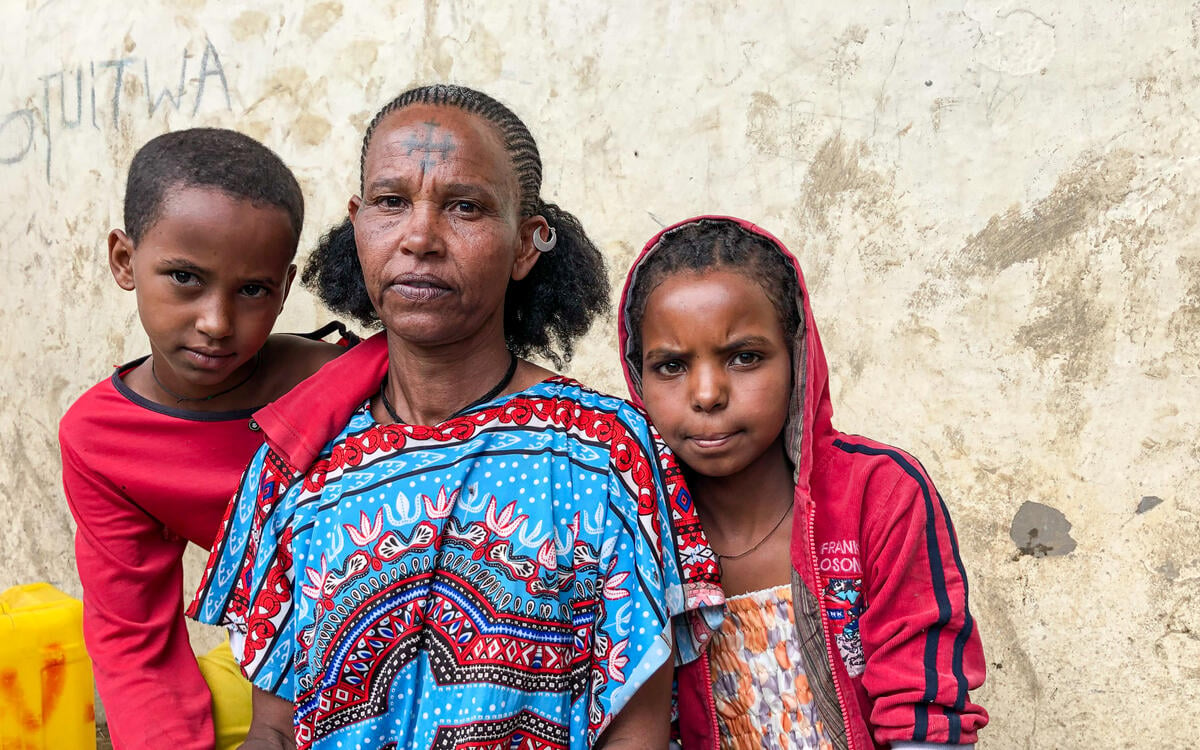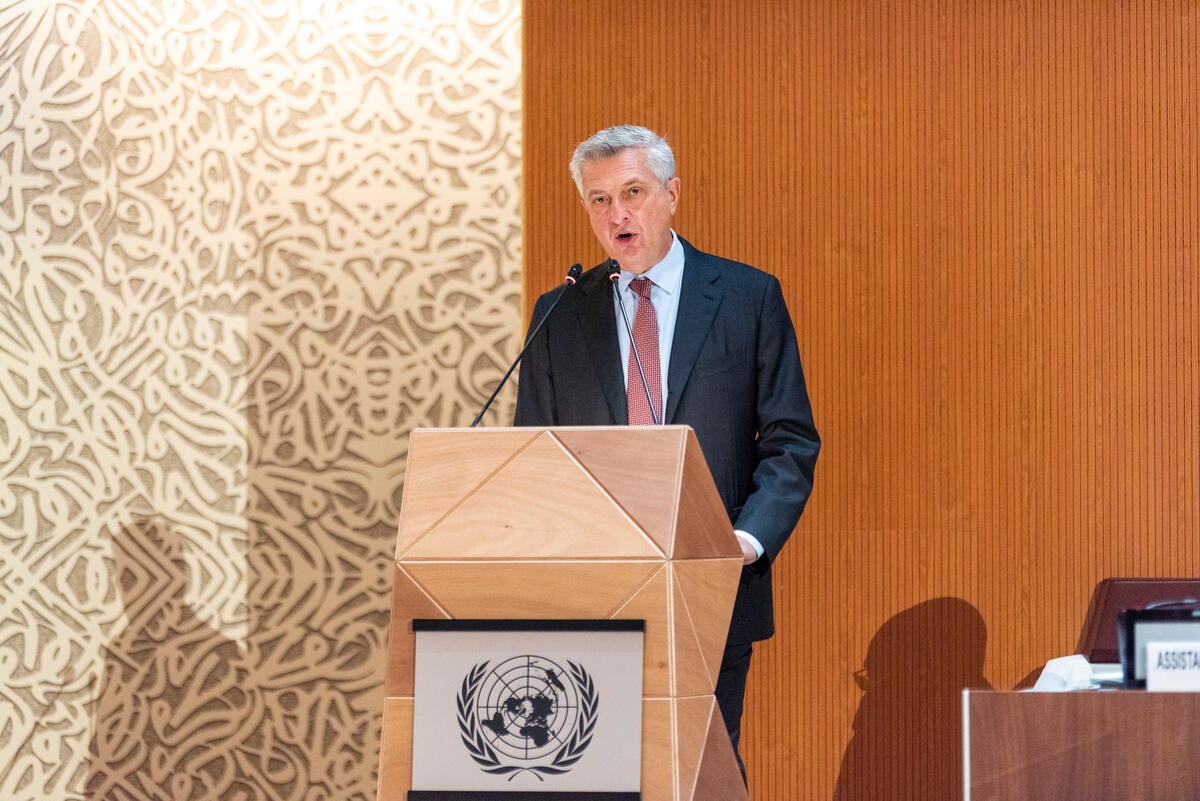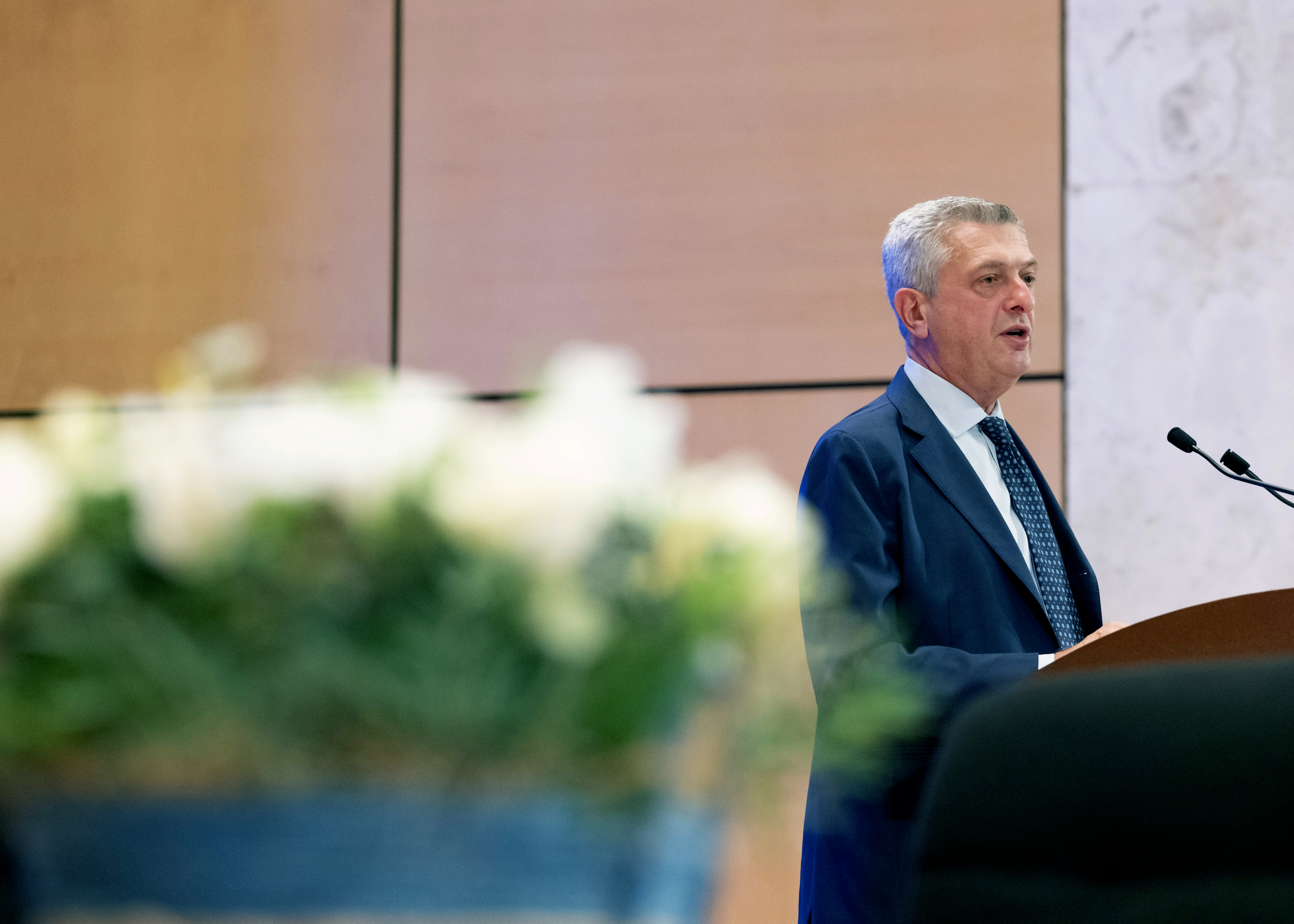Lubbers opens 55th session of UNHCR Executive Committee
Lubbers opens 55th session of UNHCR Executive Committee
4 October 2004
GENEVA - International efforts to find lasting solutions for millions of uprooted people have brought steep declines in the numbers of refugees and asylum seekers, but the institution of asylum is still being eroded by fear, confusion and politicization in many parts of the world, U.N. High Commissioner for Refugees Ruud Lubbers said Monday.
Opening the 55th annual meeting of UNHCR's 66-nation governing body, the Executive Committee, Lubbers described the overall environment in which his agency must work today as "less friendly to refugees."
"In the past few years, the politicization of immigration, confusion between refugees and economic migrants, and fears of criminal and terrorist networks have combined to erode asylum legislation in many states," the High Commissioner told delegates on the first-day of the five-day meeting in Geneva's Palais des Nations, the U.N.'s European headquarters. "Paradoxically, this has taken place against a backdrop of declining numbers of refugees and asylum seekers."
The global number of refugees and others of concern to the U.N. refugee agency has fallen from 21.8 million when Lubbers first took office in January 2001, to 17.1 million at the start of 2004 - an overall decline of nearly 22 percent. The number of people seeking asylum in industrialized countries has reached the lowest level in 17 years.
Citing several UNHCR initiatives aimed at meeting modern-day asylum challenges through greater burden sharing and international cooperation on comprehensive approaches, Lubbers noted "we are finding solutions for more and more people" - notwithstanding new emergencies in places like Sudan's strife-torn Darfur region.
The High Commissioner, who returned on Wednesday from a five-day mission to Chad and Sudan assessing UNHCR's work on behalf of hundreds of thousands of uprooted Darfurians, said he was distressed by what he saw in remote camps on both sides of the border. He said he also lamented the fact that it took "the international community half a year to wake up" to the seriousness of the situation in Darfur - which he called a crisis of "enormous and tragic dimensions." Lubbers has been to the region three times since 2003 and UNHCR was one of the first agencies - beginning in September of that year - to cite alarming refugee accounts of alleged widespread atrocities in Darfur. UNHCR is currently working in 10 refugee camps in Chad, which has received nearly 200,000 refugees from neighbouring Darfur. The agency is also working in Darfur from three main field offices.
"The large-scale killing and clearing of villages has now ended," Lubbers told the Executive Committee. "We finally have humanitarian access and UNHCR is there. I listened to the victims and my fellow humanitarians and was faced with these questions: how to protect; how to reconstruct lives; and how to rebuild after this total darkness?"
The High Commissioner said he would brief delegates more fully on his findings on Darfur at a special session on Tuesday morning.
Despite this and other difficult situations, Lubbers said there were plenty of positive refugee developments around the world. Last month, UNHCR announced the one millionth return to Bosnia and Herzegovina. Some 3.5 million people have repatriated to Afghanistan. "Africa is on the march with repatriation," Lubbers added, noting that several nations on that continent were either preparing for or carrying out large-scale voluntary returns.
Some 10,000 people a month are going home to Burundi. The three-year Sierra Leone repatriation operation drew to a close in July after helping more than 280,000 people return. On Friday, UNHCR began its massive Liberia repatriation programme, expected to bring some 340,000 people home over the next three years. Another 250,000 have so far returned to Angola and 230,000 have gone home to Eritrea. Lubbers said these and other current or potential returns - involving a total of nine African countries and at least 2 million refugees and millions more internally displaced - reflect a growing commitment by the international community to enhance voluntary repatriation and find solutions to some of the world's most protracted refugee situations.
"There must be a similar pledge to post-conflict reconstruction and sustainable reintegration in order to break the cycle of violence," he said.
Lubbers reiterated his concern over the plight of North Korean asylum seekers in China and said UNHCR was continuing to press the Beijing government for access to them. He said he would welcome the chance to discuss the issue with Chinese authorities.
The High Commissioner also stressed the agency's global priority of ensuring proper protection and assistance for refugee women, including their participation in camp management and food distribution. James Morris, Executive Director of the World Food Programme, was a special guest at the opening session.
Lubbers thanked Amb. Jean-Marc Boulgaris of Switzerland for his work as Executive Committee Chairman over the past year, and welcomed the new Chairman, Amb. Herman Escudero Martinez of Ecuador. Zambia and Egypt were welcomed as the newest members of the committee. The 55th annual session ends on Friday.


